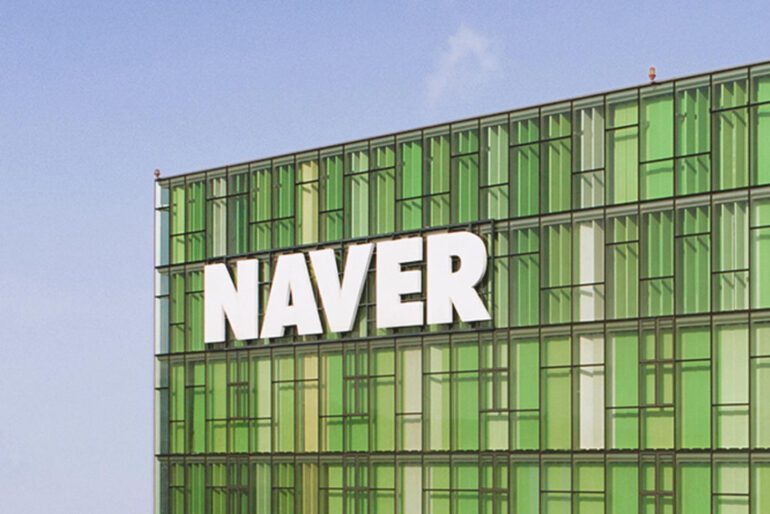TL;DR:
- Naver Corp. will launch its AI chatbot, Cue:, next month, entering the global race for generative AI in search.
- Naver aims to defend its dominant position in the Korean search engine market by providing tailored services for the local market.
- Cue: is a search service equipped with chatbot AI, designed to curate Naver’s ecosystem materials and engage in conversations with users.
- The development of Cue: is in its final stages, with plans for a beta service release next month.
- Naver’s large-scale language model, OCEAN, forms the backbone of Cue:, enabling a better understanding of users’ search intentions.
- There is speculation about integration with HyperCLOVA X, a forthcoming language model.
- Naver delayed the release to refine its own version and address issues observed in foreign AI chatbots.
- Cue: aims to enhance Naver’s search quality and answer reliability by applying a fact verification model.
- Naver plans to integrate Cue: into its existing search services and potentially release it as a standalone app.
- The Korean search market may be reshaped by AI applications, with Google and Microsoft posing a threat to Naver’s dominance.
Main AI News:
Naver Corp., the South Korean platform giant, is set to launch its AI chatbot called Cue: next month, entering the global competition for generative AI in the search sector. While companies like Google and Microsoft have taken the lead in expanding the AI ecosystem, Naver aims to defend its dominant position in the Korean search engine market by providing tailored services for the local market.
According to Maeil Business Newspaper, Naver has finalized the name of its next-generation search chatbot, formerly known as Search GPT, as Cue:. The company has also completed the trademark application process with the Korean Intellectual Property Office. Cue: is a search service that incorporates AI chatbot capabilities, similar to Microsoft Bing’s ChatGPT.
The name Cue: signifies the prompt signal that is always ready to engage in conversations with users. It also represents two important aspects: curation and curiosity. Cue: acts as a curious and creative “search advisor” by curating Naver’s ecosystem materials to match users’ preferences. The name was carefully chosen after gathering internal and external opinions and engaging in deliberations for over a month.
The development of the Cue: the project is currently in its final stages, and Naver plans to introduce it to the market through a beta service next month. In conjunction with this launch, Naver is preparing to revamp the platform’s user interface (UI), user experience (UX), and its main services, aligning with the evolving AI paradigm.
At the core of the Cue: project lies Naver’s large-scale language model (LLM) for search, called OCEAN. OCEAN is a specialized search version of Naver’s own language model, HyperCLOVA. Cue: is built on the foundation of OCEAN and utilizes the search flow data accumulated by Naver over the past two decades to better understand users’ search intentions. There is also speculation about its potential integration with the upcoming HyperCLOVA X, a new and advanced LLM set to be released in July or August. Naver envisions bolstering the service by connecting HyperCLOVA X with Cue: in the future.
Originally planned for release in the first half of this year, Naver postponed the unveiling by about a month to refine its own version. The decision was driven by Naver’s commitment to addressing issues such as hallucinations and other side effects that have been associated with foreign AI chatbots like Google’s Bard and Open AI’s ChatGPT.
Cue: was developed with the fundamental objective of leveraging AI to enhance Naver’s search quality, with a particular emphasis on improving the reliability of answers. It aims to overcome the limitations of competing chatbots like ChatGPT, which may provide inaccurate answers or fabricate nonexistent facts when confronted with lengthy queries, by implementing a fact verification model.
Naver plans to prioritize the integration of Cue: into its existing search services, such as Naver Web and applications. Depending on the market response, there is a possibility of releasing it as a standalone app, similar to ChatGPT. However, if HyperCLOVA X introduces a business-to-consumer (B2C) chatbot service, Naver might follow a similar path to Microsoft Bing, integrating it separately from ChatGPT into its search service.
Industry experts speculate that the application of AI could reshape the landscape of the Korean search market. As the era of search-oriented platforms gives way to command-oriented platforms, major U.S. tech companies like Google and Microsoft are accelerating the development of large-scale AI foundation models. This poses a potential threat to Naver, as Google’s Bard and ChatGPT, both proficient in Korean, could pose a challenge.
“In the future, the search market will shift towards a focus on specific subjects and exploration, where AI takes individual preferences and related trends into account when analyzing information,” commented an industry insider. Naver is expected to leverage its AI chatbot to maintain its leadership in the search market and create a “lock-in effect” by integrating AI into services like shopping and finance.
Conclusion:
Naver’s upcoming release of the AI chatbot Cue: signifies its determination to maintain its leadership in the Korean search market amidst competition from global tech giants. By focusing on tailored services for the local market and leveraging its language model expertise, Naver aims to enhance search quality and answer reliability. However, the entry of AI-powered chatbots from Google and Microsoft introduces challenges, necessitating Naver’s continuous innovation and strategic integration of AI into its services to maintain its market position.

